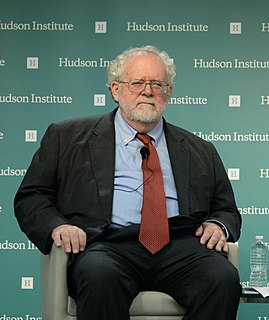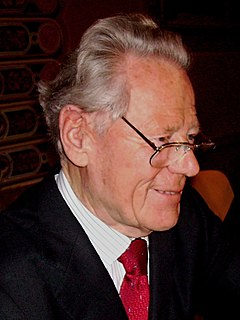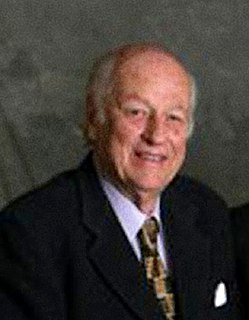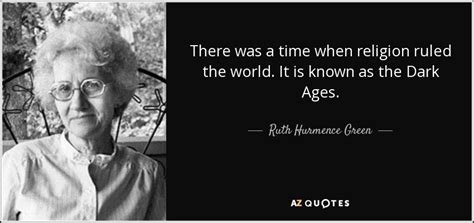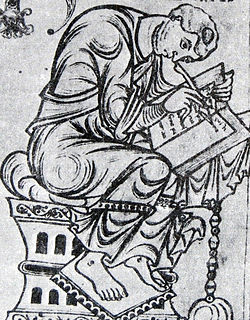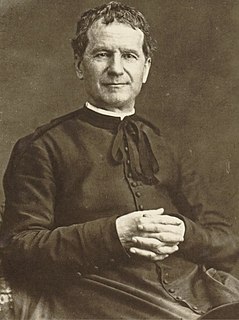Top 772 Rome Quotes & Sayings - Page 12
Explore popular Rome quotes.
Last updated on November 12, 2024.
Being in grief, it turns out, is not unlike being in love.
In both states, the imagination's entirely occupied with one person. The beloved dwells at the heart of the world, and becomes a Rome: the roads of feeling all lead to him, all proceed from him. Everything that touches us seems to relate back to that center: there is no other emotional life, no place outside the universe of feeling centered on its pivotal figure.
...it would be a mistake...to ascribe to Roman legal conceptions an undivided sway over the development of law and institutions during the Middle Ages... The Laws of Moses as well as the laws of Rome contributed suggestions and impulse to the men and institutions which were to prepare the modern world; and if we could have but eyes to see... we should readily discover how very much besides religion we owe to the Jew.
In the beginning the church was a fellowship of men and women centering on the living Christ. Then the church moved to Greece where it became a philosophy. Then it moved to Rome where it became an institution. Next, it moved to Europe, where it became a culture. And, finally, it moved to America where it became an enterprise.
I think what you are seeing is Donald Trump is making an amazing first trip. He's going to Saudi Arabia, he's going to Israel and he's going to Rome. Think about that - three of the strongest religions. He's going to go together, talk to all of them. And his message is going to be about unity. He is going to show what American leadership looks like, because those are areas of the world that have questioned it.
Weep for me, whoever has charity, truth and justice! I did not come on this voyage for gain, honor or wealth, that is certain; for then the hope of all such things was dead. I came to Your Highnesses with honest purpose and sincere zeal; and I do not lie. I humbly beseech Your Highnesses that, if it please God to remove me hence, you will help me to go to Rome and on other pilgrimages.
When Edward Gibbon was writing about the fall of the Roman Empire in the late 18th century, he could argue that transportation hadn't changed since ancient times. An imperial messenger on the Roman roads could get from Rome to London even faster in A.D. 100 than in 1750. But by 1850, and even more obviously today, all of that has changed.
The civilized nations--Greece, Rome, England--have been sustained by the primitive forests which anciently rotted where they stand. They survive as long as the soil is not exhausted. Alas for human culture! little is to be expected of a nation, when the vegetable mould is exhausted, and it is compelled to make manure of the bones of its fathers. There the poet sustains himself merely by his own superfluous fat, and the philosopher comes down on his marrow-bones.
While [the Arians], like men sprung from a dunghill, truly "spoke from the earth" [Jn. 3:31], the bishops [of Nicea], not having invented their phrases for themselves, but having testimony from their fathers, wrote as they did. For ancient bishops, of the great Rome and our city [i.e., Alexandria, Egypt, where Athanasius was bishop], some 130 years ago, wrote and censured those who said that the Son was a creature and not consubstantial with the Father.
If you cannot see that divinity includes male and female characteristics and at the same time transcends them, you have bad consequences. Rome and Cardinal O'Connor base the exclusion of women priests on the idea that God is the Father and Jesus is His Son, there were only male disciples, etc. They are defending a patriarchal Church with a patriarchal God. We must fight the patriarchal misunderstanding of God.
I saw also the relationship between the two popes I saw how baleful (evil; harmful) would be the consequences of this false church. I saw it increase in size; heretics of every kind came into the city (of Rome) Once more I saw the Church of Peter was undermined by a plan evolved by the secret sect (Masonry), while storms were damaging it.
[Sviatoslav] Schevchuk, in the dogmatic part declares himself to be a son of the Church and in communion with the bishop of Rome and the Church. He speaks of the Pope and his closeness of the Pope and of himself, his faith, and also of the Orthodox people there. The dogmatic part, there's no difficulty. He's Orthodox in the good sense of the word, that is in Catholic doctrine, no.
The assumption that everything past is preserved holds good even in mental life only on condition that the organ of the mind has remained intact and that its tissues have not been damaged by trauma or inflammation. But destructive influences which can be compared to causes of illness like these are never lacking in the history of a city, even if it has had a less chequered past than Rome, and even if, like London, it has hardly ever suffered from the visitations of an enemy.
If some lose their whole fortunes, they will drag many more down with them . . . believe me that the whole system of credit and finance which is carried on here at Rome in the Forum, is inextricably bound up with the revenues of the Asiatic province. If Those revenues are destroyed, our whole system of credit will come down with a crash.
I had proposed to HBO a series about the city cops in Rome at the time of Nero. What had interested me was the idea of order without law. The Praetorian Guard, who were the emperor's guards, understood how they were to proceed. But for the city cops, who were called the Urban Cohorts, there was no law at all.
If Jesus remained dead, how can you explain the reality of the Christian church and its phenomenal growth in the first three centuries of the Christian era? Christ's church covered the Western world by the fourth century. A religious movement built on a lie could not have accomplished that....All the power of Rome and of the religious establishment in Jerusalem was geared to stop the Christian faith. All they had to do was to dig up the grave and to present the corpse. They didn't.
Since Christ is the only way to the Father, in order to highlight His living and saving presence in the Church and the world, the International Eucharistic Congress will take place in Rome, on the occasion of the Great Jubilee. The Year 2000 will be intensely Eucharistic: in the Sacrament of the Eucharist the Savior, who took flesh in Mary's womb twenty centuries ago, continues to offer Himself to humanity as the source of Divine Life
I pictured the two of them alone. Perhaps showering together, as Rome and I liked to do. My stomach clenched painfully, amusement forgotten. “Cody, will you take me to the nearest clinic? I need someone to dig the knife out of my back. Lexis might need it again. And the good doctor might want to give me a tetanus shot. I think she bled on me.” Stunned silence. I often had that effect.
Inclined to peace by his temper and situation, it was easy for [Augustus] to discover that Rome, in her present exalted situation, had much less to hope than to fear from the chance of arms; and that, in the prosecution of remote wars, the undertaking became every day more difficult, the event more doubtful, and the possession more precarious and less beneficial.
When I went to see Valentino in Rome, I discovered 120 women in these ateliers who sew $100,000 dresses. There are no sewing machines. It's all done by hand for thousands of hours. It's a dying art and Valentino is really the last practitioner, the last person at the top of his house, which is why I called it The Last Emperor. That world is gone. You can almost see it slipping away as the cameras are rolling.
When the Gauls laid waste Rome, they found the senators clothed in their robes, and seated in stern tranquillity in their curule chairs; in this manner they suffered death without resistance or supplication. Such conduct was in them applauded as noble and magnanimous; in the hapless Indians it was reviled as both obstinate and sullen. How truly are we the dupes of show and circumstances! How different is virtue, clothed in purple and enthroned in state, from virtue, naked and destitute, and perishing obscurely in a wilderness.
Whether I'm at a dinner with Anna Wintour or a listening party with Pusha T or in Rome with Virgil (Abloh, his style adviser) giving Fendi our designs and getting them knocked down... we brought the leather jogging pants six years ago to Fendi, and they said no. How many m*****f***ers you done seen with a leather jogging pant?
Animation had been used only for things like King Kong and the destruction of cities, which was very popular in the 1950s. I got tired of destroying cities. I destroyed New York, I destroyed San Francisco's Golden Gate Bridge, Rome, and Washington. I was looking for a new outlet, and I came across the Sinbad legends.
What is there in Rome for me to see that others have not seen before me? What is there for me to touch that others have not touched? What is there for me to feel, to learn, to hear, to know, that shall thrill me before it pass to others? What can I discover?--Nothing. Nothing whatsoever. One charm of travel dies here.
Quintilian [educational writer in Rome around A.D. 100] thought that the earliest years of the child's life were crucial. Education should start earlier than age seven, within the family. It should not be so hard as to give the child an aversion to learning. Rather, these early lessons would take the form of play--that embryonic notion of kindergarten.
Historically the belief in heaven and the belief in utopia are like compensatory buckets in a well: when one goes down the other comes up. When the classic religions decayed, communistic agitation rose in Athens (430 B.C.), and revolution began in Rome (133 B.C.); when these movements failed, resurrection faiths succeeded, culminating in Christianity; when, in our eighteenth century, Christian belief weakened, communism reappeared. In this perspective the future of religion is secure.
Rome is burning, Jesus says. Drop your fiddle, change your life and come to Me. Let go of the good days that never were - a regimented church you never attended, traditional virtues you never practiced, legalistic obedience you never honored, and a sterile orthodoxy you never accepted. The old era is done. The decisive inbreak of God has happened.
The decline of Rome was the natural and inevitable effect of immoderate greatness. Prosperity ripened the principle of decay; the cause of the destruction multiplied with the extent of conquest; and, as soon as time or accident and removed the artificial supports, the stupendous fabric yielded to the pressure of its own weight. The story of the ruin is simple and obvious: and instead of inquiring why the Roman Empire was destroyed we should rather be surprised that it has subsisted for so long.
We may wonder at the choice of Israel and Rome as the archetypes of the new nation, in view of the long history of suffering of the former and the decline of the latter. We may wonder that our ancestors over-looked the darker days of those earlier nations. They did not. They hoped to construct a republic on principles to sound that if we should decline in piety and public virtue we would meet the inexorable fate of nations, which are as but dust in the hands of God.
The Doxology ... that testimonial to the Platonic Trinity, which divided the Roman Empire into at least eighteen quarreling sects, none of whom knew what they were fighting about, and which schisms contributed to the decline and fall of this greatest of states. Rome had thrived for one thousand years with pagan gods at the helm and expired after only one hundred and fifty years under the Christian banner.
I made two rings for myself and when I was in Los Angeles, I walked into a store called Maxfields and they essentially bought them off my hands. Those were originally made in New York. There wasn't craftsmanship, there was just manufacturing, and I wasn't interested in doing that. My first workshop was in Rome, and that was the start of House of Waris. In a little magical atelier, a goldsmith, his apprentice, his stone setter - and that was where it began.
Putting gloves on the fighters was a symbolic change that suggested that we were now making it a civilized sport, and it was no longer this crazy gladiatorial throwback to ancient Rome. It's even in our language: If you want to get serious and violent, what do you do? You "take the gloves off." Bare-fisted is supposedly a much more dangerous way to hit someone. But we've got it completely backward. The glove is a weapon. It massively accentuates the ability of the fist to do harm.
Film maker Andi Olsen has a wonderful short film called Where the Smiling Ends. She waited at the Trevi Fountain in Rome and filmed the tourists only at the moment after their photos had been snapped, the moment their smiles dissolved. It's genius and heartbreaking. I think about her film when I explore the places the strips malls meet the wild world they are eating up.
If you want a symbol of Roman power and strength look no further than the Praetorian or Imperial Guard. We could take this one step further. It was this world of Roman power into which Christ came, in which the Apostles ministered, in which the New Testament authors wrote, and in which Christianity came into being. And to all of those things, Rome stood opposed, violently opposed.
There is in fact a true law namely right reason, which is in accordance with nature, applies to all men and is unchangeable and eternal. ... It will not lay down one rule at Rome and another at Athens, nor will it be one rule today and another tomorrow. But there will be one law eternal and unchangeable binding all times and upon all peoples.
What distinguishes the arid ages from the period of the Reformation, when nations were moved as they had not been since Paul preached in Ephesus, Corinth, and Rome, is the latter's fullness of knowledge of God's Word. To echo an early Reformation thought, when the ploughman and the garage attendant know the Bible as well as the theologian does, and know it better than some contemporary theologians, then the desired awakening shall have already occurred.
I just went to Europe, spent a year traveling, and then I came home with a finished album and said, "Hey everyone I'm back!" I gave everyone their lighters from Luxembourg, gave them the postcards from Italy and Rome, then said, "Hey look, I made a record, too" and played it for them. The general reaction was shock, because it was so different from what they've known me to do.
The Jews believed Jerusalem to be the centre. I have seen a kratometric chart designed to show that the city of Philadelphia was in the same thermic belt, and, by inference, in the same belt of empire, as the cities of Athens, Rome, and London. It was drawn by a patriotic Philadelphian, and was examined with pleasure, under his showing, by the inhabitants of Chestnut Street. But, when carried to Charleston, to New Orleans, and to Boston, it somehow failed to convince the ingenious scholars of all those capitals.
I think the International Criminal Court could be a threat to American security interests, because the prosecutor of the court has enormous discretion in going after war crimes. And the way the Statute of Rome is written, responsibility for war crimes can be taken all the way up the chain of command. This is the sort of investigation that some people who live in Fairyland might like to undertake, but which bears no relationship at all to conditions in the real world.
Because I know that the early Greeks and Romans and the early Europeans at that age did not see racism as we see it now - because racism was created to justify slavery to build the capital for capitalism - and back in the day they respected talent over race. We had an African Pope in the late 5th century, we had an African Emperor of Rome, and early church Fathers were black.
If you want to live in Tennessee, God bless you, I wish for you a long life and starry evenings. But that is not where I want to live my life. I want to live my life in Carthage, in Athens. I want to live my life in Rome. I want to live my life in the center of the world. I want to live my life in Los Angeles.
The fall of Rome is often regarded as an object lesson in the wages of sin. Its contemporaries, however, more frequently laid the blame on the rise of Christianity. . . . Although they do not inquire into the future, and either forget or do not know the past, yet defame present times as most unusually beset, as it were, by evils because there is belief in Christ and worship of God, and increasingly less worship of idols.
No slave system has ever been able to continue to function on the slaves provided by its own biological reproduction because the rate of human reproduction is too slow and the expense from infant mortality and years of unproductive upkeep of the young make this prohibitively expensive. This relationship is one of the basic causes of the American Civil War, and was even more significant in destroying ancient Rome.
Monogamy, or restrictions by law to one wife, is no part of the economy of heaven among men. Such a system was commenced by the founders of the Roman Empire... Rome became the mistress of the world, and introduced this order of monogamy wherever her sway was acknowledged. Thus this monogamic order of marriage, so esteemed by modern Christians as a hold sacrament and divine institution, is nothing but a system established by a set of robbers.
Be ever more convinced that your guardian angel is really present, that he is ever at your side. St. Frances of Rome always saw him standing before her, his arms clasped at his breast, his eyes uplifted to Heaven; but at the slightest failing, he would cover his face as if in shame, and at times, turn his back to her.
I foresee the time when the painter will paint that scene, no longer going to Rome for a subject; the poet will sing it; the historian record it; and, with the Landing of the Pilgrims and the Declaration of Independence, it will be the ornament of some future national gallery, when at least the present form of slavery shall be no more here. We shall then be at liberty to weep for Captain Brown. Then, and not till then, we will take our revenge.
In the infancy of civilization, when our island was as savage as New Guinea, when letters and arts were still unknown to Athens, when scarcely a thatched roofed hut stood on what was later the site of Rome, this contemned people had their fenced cities and cedar palaces, their splendid Temple, their fleets of merchant ships, their schools of sacred learning, their great statesmen and soldiers, their natural philosophers, their historians and their poets.
The main task for us all is that of a new evangelization aimed at helping younger generations to rediscover the true face of God, who is Love. To you young people, who are in search of a firm hope, I address the very words that Saint Paul wrote to the persecuted Christians in Rome at that time: "May the God of hope fill you with all joy and peace in believing, so that you may abound in hope by the power of the Holy Spirit" (Rom 15:13).
The names of great painters are like passing-bells: in the name of Velasquez you hear sounded the fall of Spain; .in the name of Titian, that of Venice; in the name of Leonardo, that of Milan; in the name of Raphael, that of Rome. And there is profound justice in this, for in proportion to the nobleness of the power is the guilt of its use for purposes vain or vile; and hitherto the greater the art, the more surely has it been used, and used solely, for the decoration of pride or the provoking of sensuality.
But why do some people support [the heretics]?" "Because it serves their purposes, which concern the faith rarely, and more often the conquest of power." "Is that why the church of Rome accuses all its adversaries of heresy?" "That is why, and that is also why it recognizes as orthodoxy any heresy it can bring back under its own control or must accept because the heresy has become too strong.
A central feature of the ceremonial associated with Mithras was the taurobolium, the ritual slaughter of a bull which commemorated and repeated Mithras' primeval act. The initiate was baptized in its blood, partaking of its life-giving properties. It may be noted that this part of the ceremonial closely resembled the ritual of the cult of Cybele, the Great Mother of Asia Minor, which had been brought to Rome three centuries before Christ.
An institution is the lengthened shadow of one man; as, monachism of the Hermit Anthony, the Reformation of Luther, Quakerism of Fox, Methodism of Wesley, abolition of Clarkson. Scipio, Milton called "the height of Rome;" and all history resolves itself easily into the biography of a few stout and earnest persons. Let a man, then, know his worth, and keep things under his feet.
The technologies which have had the most profound effects on human life are usually simple. A good example of a simple technology with profound historical consequences is hay. ... It was hay that allowed populations to grow and civilizations to flourish among the forests of Northern Europe. Hay moved the greatness of Rome to Paris and London, and later to Berlin and Moscow and New York.
One of my favorite scenes in Fellini is the ecclesiastical fashion show in Roma, and the end of 8 ½, when all the characters in the life of Guido, Marcello Mastroianni, get together and do this grand procession. That was on my mind, especially at the 45th anniversary, when all those characters in Valentino's life returned to Rome. I kept watching that and saying, if only we can arrange that grand procession at the end...and it kind of happened.
Rome was in the most dangerous inclination to change on account of the unequal distribution of wealth and property, those of highest rank and greatest spirit having impoverished themselves by shows, entertainments, ambition of offices, and sumptuous buildings, and the riches of the city having thus fallen into the hands of mean and low-born persons. So that there wanted but a slight impetus to set all in motion, it being in the power of every daring man to overturn a sickly commonwealth.







